Direction and Market Bias
The 4H timeframe sets the primary bias for every trade. No entry should be taken against this higher timeframe direction.
- Use the 4H chart to define whether the market is trending or ranging.
- Identify structure:
- Bullish Higher Highs and Higher Lows (HH–HL)
- Bearish Lower Highs and Lower Lows (LH–LL)
- Mark major support and resistance zones that price respects repeatedly.
- Mark weekly highs and lows if they align with strong reaction areas.
- Treat these 4H zones as decision points where you will later look for entries on lower timeframes.
Your first question every session: “What is the 4H bias and where are the most important zones?” If this is not clear, do not move to lower timeframes yet.
Trend, FVG, Order Blocks and Liquidity
The 1H chart refines the 4H narrative by pinpointing the exact areas you want to trade from.
- Confirm that 1H structure is aligned with the 4H bias or is forming a clean pullback into a 4H zone.
- Locate Fair Value Gaps (FVGs) created by impulsive moves that are likely to be rebalanced.
- Identify 1H order blocks:
- Last down candle before strong bullish displacement (bullish OB).
- Last up candle before strong bearish displacement (bearish OB).
- Map out liquidity pools:
- Equal highs and equal lows that stand out on the 1H chart.
- Session highs and lows, especially London and New York.
- Previous Day High (PDH) and Previous Day Low (PDL).
- Combine 4H zones with 1H OBs and FVGs to build a tight “entry zone” where you expect high-probability setups.
Give the most weight to 1H order blocks that sit inside a 4H zone and are surrounded by liquidity. These areas often produce the cleanest reactions.
Confirmation and Entry Execution
The 5M chart is for confirmation only. It turns your higher timeframe idea into a precise, low-risk entry.
- Wait for price to trade into the 1H refined zone before looking at the 5M.
- Look for liquidity sweeps near your zone, such as a quick spike above equal highs or below equal lows.
- Watch for:
- CISD Change in State of Delivery, showing momentum slowing or reversing.
- MSS Market Structure Shift in the direction of the 4H and 1H bias.
- Enter on the retracement back into the 5M order block or FVG that formed during the displacement move.
- If confirmation does not appear, stand aside and wait for the next opportunity.
A strong sign of quality is when the 5M structure shifts immediately after a liquidity sweep inside your 1H zone. Those setups often deliver clean, directional moves.
Stops, Targets and Risk Protocol
Trade management protects your capital and locks in profits while you follow the plan with discipline.
- Place the stop loss beyond the confirming 5M structure:
- For buys, below the low of the 5M order block or swing.
- For sells, above the high of the 5M order block or swing.
- Build your targets around realistic liquidity objectives:
- TP1: Nearest obvious liquidity on 5M or 1H.
- TP2: 1H FVG or opposite 1H order block.
- TP3: Major 4H level or structural target if trend is strong.
- Once TP1 is hit, consider moving stop to break even or locking partial profit.
- Review the trade afterwards to refine your execution and journaling.
Risk only 0.5% to 1% of account balance per trade. If you hit two losses in a session, stop trading and review your plan instead of trying to recover quickly.
This trading plan is designed for clarity, structure, and disciplined execution. Always adapt position size to your own risk tolerance. All trading carries risk, and nothing in this plan should be considered financial advice.

Trade With Real Capital Through a Prop Firm
Stop limiting your potential with small personal accounts. With a Prop Firm funded account, you can trade real capital, scale faster, and keep your personal risk low.
You pay a small evaluation fee to prove your trading skills. Once you pass, the Prop Firm will fund your account and even refund your evaluation fee. From there, you trade their capital and keep a share of the profits.
- No large deposits needed.
- Scale your profits with a bigger account.
- Profit splits from funded payouts.
- Perfect for traders ready to level up responsibly.
*Trade responsibly. Always use proper risk management.

